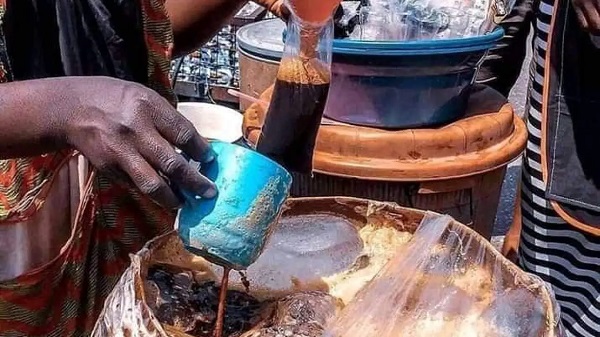If processed drinks are expensive, why not asaana?
With the prices of processed drinks skyrocketing, I have been wondering why we have not been able to add value to asaana, the local drink made from corn.
The hearts and taste buds of Ghanaians have always been captivated by asaana. It has a rich history, with a legacy that spans several generations.
On scorching hot afternoons, on the bustling streets by the Adabraka Market, a suburb in the city of Accra, one would defy all odds to seek solace in a refreshing calabash of asaana.
Asaana is non-alcoholic, Asaana has something truly unique – a taste that resonates with tradition and heritage.
Name
The name asaana originates from the Ga language, meaning, “Can I taste”?
It earned the enviable name from the secret in its exceptional taste, from a carefully guarded recipe of fermented corn fused with caramelised sugar.
Anyone who enjoys asaana knows that the sip of the drink brings fond memories of childhood, family gatherings and festive occasions.
Asaana has a place in our culture.
Despite the presence of carbonated drinks and other alternatives, asaana has managed to hold its ground and even compete favourably.
Those of us who love the drink know that no carbonated drink can replicate the deep-rooted flavour and nostalgia of asaana.
I still remember, just like yesterday, how my colleague footballers, after an exhaustive match, would rush off the street pitch to fight over the last cup of this beloved calabash drink.
Sometimes, it appeared the calabash that contained the drink was not big enough.
But that is the thing, no one can have enough of asaana.
Never
Never rebranded, never advertised, no sales promotions.
For me, it is the invigoration given by the cool and revitalising taste of asaana to the person with sweaty brows and a tired body that makes all pine for it over and over again.
But while asaana has already carved out a special place in the minds of
Ghanaians, it must reach even greater heights.
If value is added, it could be a champion on the global stage.
I dream of asaana becoming a symbol of Ghana’s cultural heritage, transcending borders and introducing the world to the taste of Ghanaian culture.
But until then, the story of asaana continues as a testament, which remains ingrained until the day it takes its rightful place among the world’s most beloved beverages.
The writer is a social media/public relations expert/Google certified digital marketer, brand strategist.
E-mail: dannunoo@gmail.


